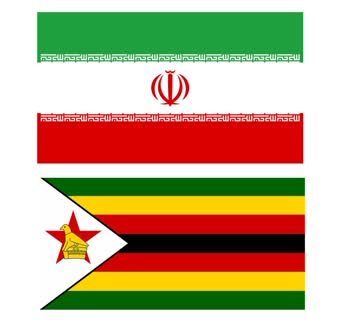Leilasadat Zafaranchi, strategic deputy of the women and family affairs department, in a meeting with the wife of Zimbabwe’s president, emphasized the importance of efforts to progress in the fields of agriculture, food security and economy.
Saying that the two countries should try to achieve self-sufficiency in the field of agriculture, Zafaranchi added: “We need self-sufficiency in the economic and food security plus the agriculture sector and strategic production, especially after the negative outcomes that the Corona pandemic has had for us”.
Expansion of knowledge-based activities of Iranian women
Pointing out that the country of Zimbabwe is capable in the field of agriculture, the strategic vice president of women and family affairs said: “Zimbabwe seems to be different from its conditions in terms of food security, climate change and even international discussions and economic sanctions. In the Islamic Republic of Iran, we welcome economic cooperation and partnerships in various fields that have economic advantages for us”.
Saying that Iranian women are at a high level in the field of knowledge-based products, Zafaranchi said: “A large number of our women have high and significant degrees in the academic field. We can have economic cooperation in the knowledge-based field as one of the important, noteworthy and successful fields of the two countries”.
Zimbabwe has been able to perform very well with its relative power in the field of food security. Women in the political and economic field of Zimbabwe have been able to make a good contribution, and now going through the post-corona situation, this field is very necessary.
Cultural cooperation between Iran and Zimbabwe

In the continuation of this meeting, Atefeh Khademi, the social advisor of the Minister of Culture and Guidance, said: “As a representative of the Minister of Culture and Islamic Guidance, I suggest that in order to achieve a concept called the freedom-loving women of the world, we are ready to do whatever the cultural and historical background of several thousand years of this land let us share with you. Also, in the field of culture, we will stand by you for all Zimbabwean women who are going to persevere in this matter”.
Stating that Iranian women and mothers sacrificed their children to fight against arrogance, Khademi reminded: “Mothers of our land sacrificed their greatest asset, their children, to achieve independence, freedom and human dignity, and they are happy and proud about it”.
She valued the efforts of the people of Zimbabwe in the path of maintaining independence and resistance and continued: “Today we are witnessing an example of these women in your land and you are the representative of this population”.
Promise to cooperate with the government of Zimbabwe regarding knowledge enterprises
Dr. Elmira Asghari, a member of the National Elite Foundation, continued this meeting by stating that Iran’s Supreme Leader addressed the youth and said that wherever you are, make it the center of the world, mentioned: “Just as the first lady of Zimbabwe, every woman is a leader, and this matter shows the closeness of the view and culture of Iran and Zimbabwe”.
Resistance and stability, the first thing that Iran and Zimbabwe have in common
The Vice President for Women and Family Affairs, Dr. Ensiyeh Khazali, also said in this meeting: “The first thing we have in common with Zimbabwe is the resistance and stability of this country, which was able to stand against colonialism and free the country from all colonialists”.
Khazali added: “An experience like JCPOA and undermining the parties in the contract was exactly repeated in Zimbabwe; also, the importance of women and family, the growth and prosperity of women in the economic sectors and the pressure of sanctions are also common features of Iran and Zimbabwe”.
Iranian women can be a good example for progress

Auxillia Mnangagwa, the wife of the President of Zimbabwe, said: “This was my first experience that with the meetings of these few days, especially the meeting with Mrs. Alam Elhadi, we have discovered a good capacity in the political and economic field between the women of Iran and the women of Zimbabwe.
She stated that Zimbabwe, like Iran, was under the sanctions of the United States, Great Britain and Western countries for many years, and we gained independence in 1980. Furthermore, industrially, we have had good experiences, but we still have delays and we should not ignore the impact of the embargo”.
The wife of the president of Zimbabwe continued by stating that there is a big gap between Iran and Zimbabwe: “However, the foundations, with the presence of women from African countries who have the same problems, can benefit from the presence of Iranian experts and specialists, even in a virtual form”.
She announced the strength of Zimbabwean women in agriculture and tourism and stated: “We are trying to achieve success in the field of politics as well”.
The women of our country have an active presence in government institutions, parliament and in government consulting jobs (government advisors) and we are doing our best to enable this option for other women so that they can be active in all fields.
She emphasized the leadership role of women in various institutions and said: “In my opinion, every woman is a pillar, whether in a village house or in a government and social position. We must train women so that they can play the role of leader and guide even in small social communities”.
Source: Tasnim News Agency


